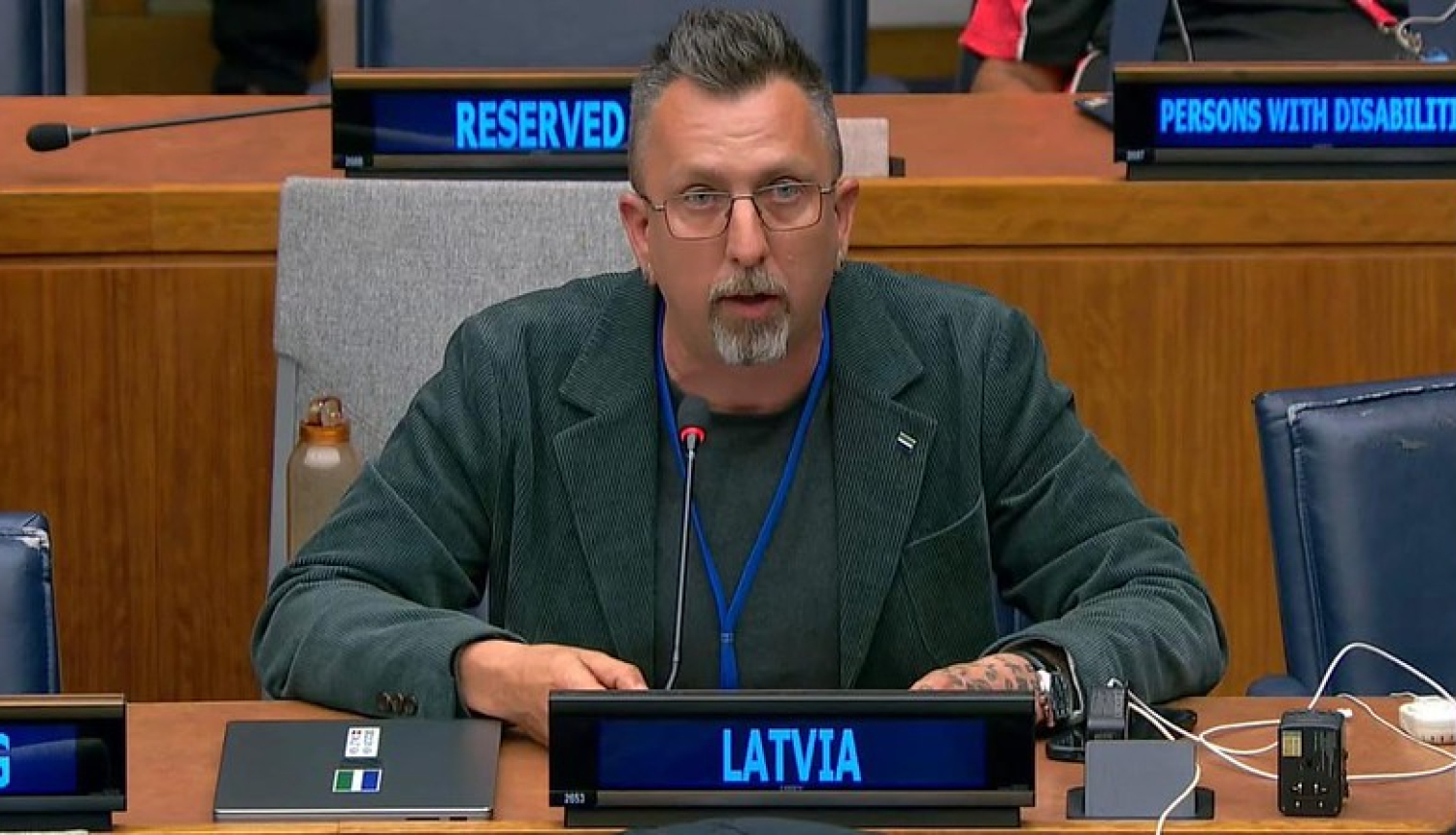From 21 to 29 April 2025, the Director of the Livonian Institute at the University of Latvia, Valsts Ernštreits, represented Latvia for the first time at the twenty-fourth session of the United Nations Permanent Forum on Indigenous Issues (UNPFII) taking place in the UN Headquarters in New York, the United States. He introduced the participants of the session with issues related to the Livonians (Livs), the organisation of indigenous peoples, and new global policy initiatives in the field of language technologies, including the Global Roadmap for Multilingualism in the Digital Era currently being developed by UNESCO.
Latvia is one of the three of the European Union Member States which have an indigenous community with a status enshrined in law – the Livonians – and its is represented at the forum for the first time. This past April, Valts Ernštreits, a representative of Latvia, was elected as permanent member of the forum for its next term of 2026-2028.
To raise awareness of the threat of extinction faced by indigenous languages, Valts Ernštreits encouraged indigenous people to make every indigenous language matter by participating in the Global Survey on Indigenous Languages, co-developed by Ad-Hoc Groups of the International Decade of Indigenous Languages (2022-2032).
The representative of Latvia, in close partnership with Refat Chubarov, who represents Ukraine and the Crimean Tatars, emphasized Latvia’s unwavering support for the prohibition of hostilities and military activities in indigenous territories set out in the UN Declaration on the Rights of Indigenous Peoples. This applies both to Europe, including Ukraine, against which Russia is waging its war of aggression, and to other parts of the world.
Participation by Valts Ernštreits in the event was supported as part of the public diplomacy programme under the lobby campaign of Latvia’s candidacy for the United Nations Security Council. The campaign under the motto of “Together for peace and resilience” aims at ensuring that Latvia, a first-time candidate for an elected member’s seat, is elected to the UN Security Council for the 2026–2027 term. Membership of the UNSC will be a key instrument in pursuit and protection of Latvia’s foreign policy interests and enable Latvia to expand its international cooperation, thereby contributing to world peace and resilience.
The participation was also supported by the Livonian Institute of the University of Latvia, which is a research institution set up in 2018 for research into the language and heritage of Latvia’s indigenous people – Livonians, as well as studies of the sustainability and resilience of critically endangered indigenous languages.
Background information
The United Nations Permanent Forum on Indigenous Issues (UNPFII) established in 2000 with the aim of raising awareness on the preservation, development and integration of indigenous cultures in cultural, political and other processes. The forum has become the main platform for the promotion of Indigenous rights across the globe.
The UNESCO Global Action Plan of the International Decade of Indigenous Languages (2022-2032) was developed in 2022 to raise awareness of the threat of extinction faced by indigenous languages and to mobilise international community for immediate protection measures.
As part of IDIL2022-2032, four Ad-Hoc Groups have been established, each comprising individual experts who provide guidance in specific thematic areas related to measures for the protection of indigenous languages. A co-chair of the Ad-Hox Group on Digital Equality and Domains is a representative of Latvia’s Livonian community, Valts Ernštreits. Less than 2 per cent of indigenous languages can be used online – in localised software and websites, translation and speech-to-text services, and content regulation algorithms.
The first Global Survey on Indigenous Languages will take place until 11 July 2025.





